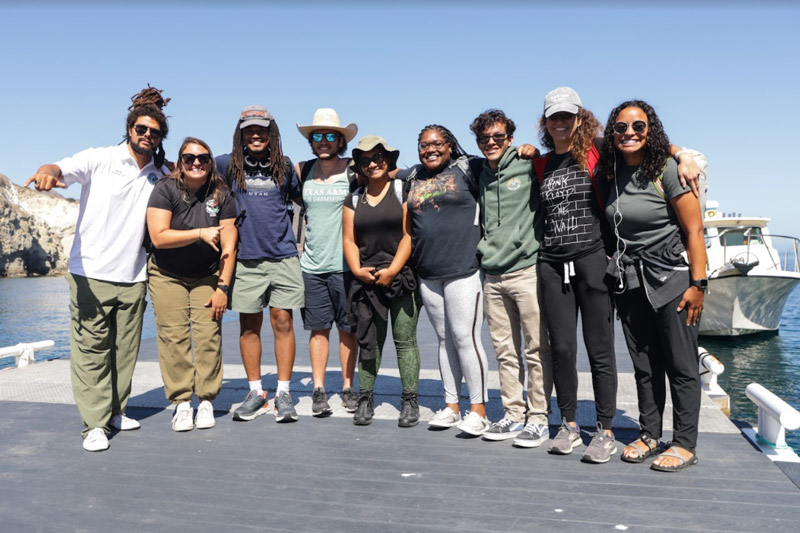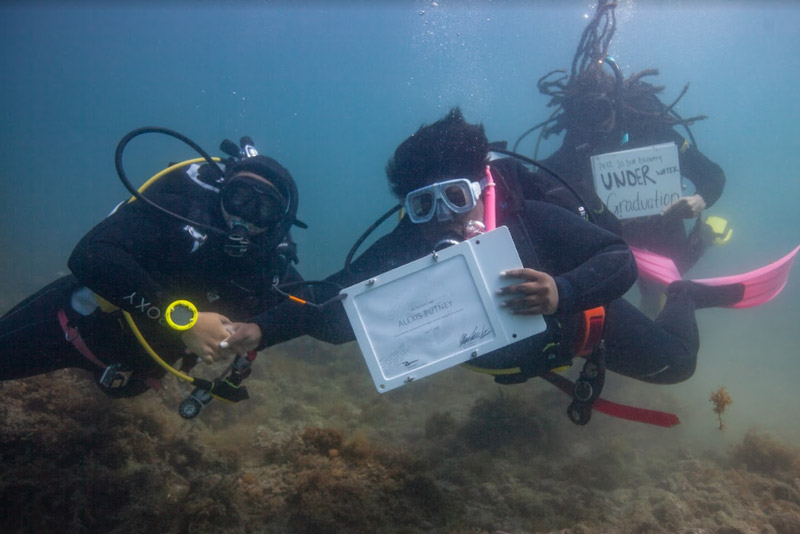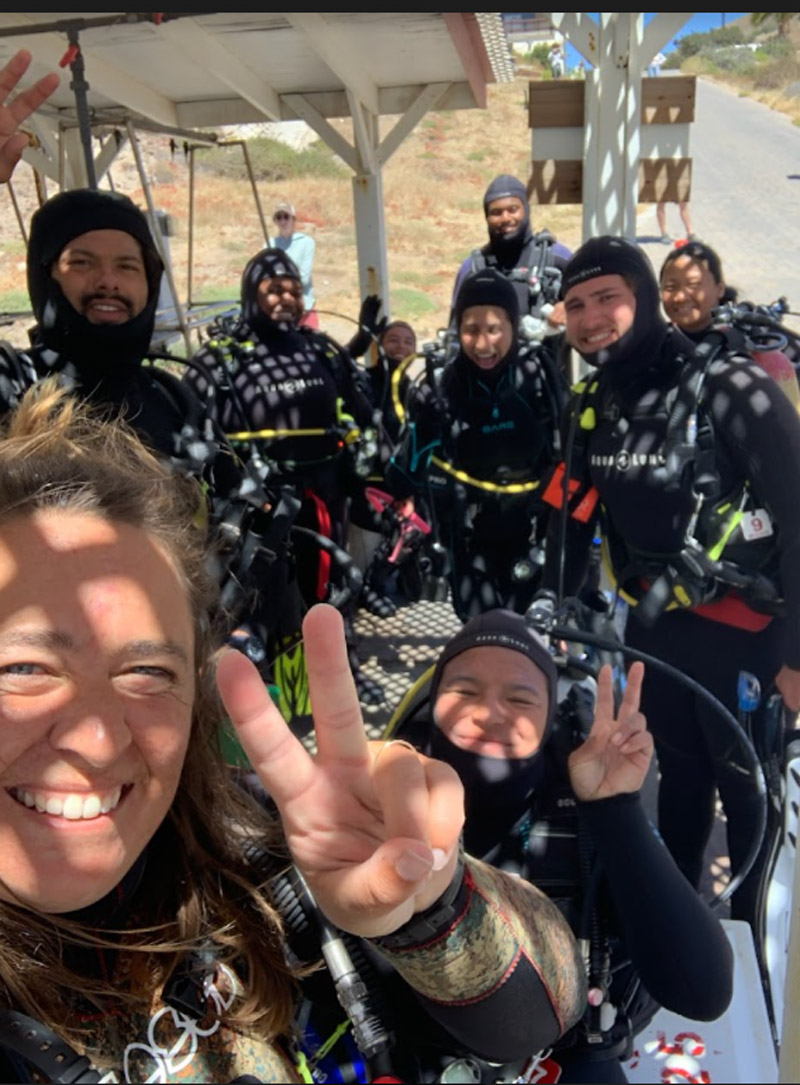University of Southern California Professors Support Underrepresented Student Career Development Through Scientific Diving Course
University of Southern California (USC) faculty and staff, including Professor of Biological Sciences and Environmental Studies Dr. John Heidelberg, USC Wrigley Institute for Environmental Studies Executive Director Dr. Jessica Dutton, and Dive Safety Officer Hanna Reed, created an American Academy of Underwater Sciences (AAUS) dive training program for students from backgrounds that are underrepresented in the scientific diving community.

Program participants gather for a group photo at the University of Southern California Wrigley Marine Science Center. Image courtesy of Yannick Peterhans/USC Wrigley Institute. Download largest version (1 MB).
The goal of the program was to prioritize recruiting and retaining diverse students in marine science fields by utilizing the resources available through the Philip K. Wrigley Marine Science Center , a field laboratory on Santa Catalina Island operated by the USC Wrigley Institute for Environmental Studies . The program specifically addressed barriers to entry and retention for underrepresented students in the SCUBA-based, science, technology, engineering, and math (STEM) workforce pipeline including limited access to swim and dive training, the financial burden of expensive equipment, and a lack of mentoring and networking opportunities. Supported by an Ocean Exploration Education Mini-Grant from NOAA Ocean Exploration and the National Marine Sanctuary Foundation, the cohort of seven underrepresented students gained training for careers in ocean science and scientific diving as AAUS-certified divers.

Alexis Putney, a student in the scientific diving course at the Wrigley Institute for Environmental Studies, attains her American Academy of Underwater Sciences (AAUS) dive certification. Image courtesy of Yannick Peterhans/USC Wrigley Institute. Download largest version (989 KB).
To attain this high level of diving proficiency, students underwent rigorous skills training which started before they even left home. Prior to arriving at the USC Wrigley Institute, all seven students underwent open water SCUBA training and bought basic dive gear with grant funds for their upcoming three-week long AAUS course on Catalina Island.
Once the cohort convened at the Wrigley Marine Science Center, their scientific training commenced! Skills included diving emergency care as well as instruction and practice in gathering field-based data through the use of transects, underwater mapping and navigation, and organism identification, among other techniques. Most of the class time was spent in the water practicing skills so students could gain the knowledge and confidence to be safe and successful lifelong divers.

The student cohort and an instructor gather at the Wrigley Institute for Environmental Studies on Santa Catalina Island as they prepare to practice underwater field techniques. Image courtesy of Hanna Reed/USC Wrigley Institute. Download largest version (667 KB).
To complement their in-water skills, students interacted with professionals in the marine science field to increase exposure to professional development pathways. Cohort students had frequent ‘near-peer’ opportunities for exchange and mentorship with graduate students in marine and environmental biology as well as opportunities to attend seminars conducted by university faculty conducting research at the Wrigley Marine Science Center, emphasizing dive careers inside and outside of the natural sciences. As a result of participating in this program, participants all gained both Open Water and AAUS SCUBA certifications, NAUI Advanced Scuba certification, NAUI Diving First Aid certification, basic equipment, an awareness of SCUBA-based STEM careers, and connections with university faculty and peers who can offer support as they work toward their professional goals.
NOAA Ocean Exploration and the National Marine Sanctuary Foundation launched the Ocean Exploration Education mini-grants in 2021 to engage and inspire the next generation of ocean explorers by advancing diversity, equity, inclusion, and accessibility efforts related to ocean literacy, stewardship, and workforce development. The University of Southern California’s project is one of seven that were awarded up to $25,000 to support underserved and/or underrepresented communities in engaging in ocean exploration career pathways and to build capacity for Science, Technology, Engineering, Art, and Math educators to bring ocean science and exploration alive in the classroom and beyond.
Published October 4, 2022